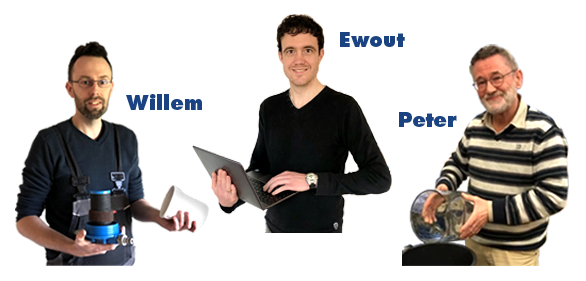- Which substances do you want to filter?
- PFAS water filters
PFAS water filters
Product added to your quotation. Go to the quote page to complete your quotation request, we will contact you as soon as possible.
If you landed on our page, you are searching for clean and safe drinking water. Today, even tap water at home contains harmful contaminants. PFAS, also known as forever chemicals, are among the most difficult substances to remove from water.
Aqualogic water filters reduce PFAS in your drinking water, no matter which water source you use. They also remove other toxic substances such as heavy metals, dangerous microorganisms, and chemical pollutants.
When you choose our filters, you get advanced activated carbon technology combined with ultra-fine membranes. The test results confirm their effectiveness against PFAS. Protect your health and keep your family safe by choosing clean water with Aqualogic.
Reduce PFAS with water filters
Loading...
Make your drinking water safer with Aqualogic PFAS water filters
You have probably heard of PFAS, and you likely know they are far from harmless. When there is a strange-looking sea foam on the beach, you would not let even your dog run through it. Unfortunately, PFAS chemicals are widespread, making them increasingly difficult to avoid.What is PFAS?
PFAS stands for per- and polyfluoroalkyl substances, a group of synthetic chemicals not found naturally in the environment. The term includes various compounds such as PFOA (perfluorooctanoic acid), PFOS (perfluorooctanesulfonate), and GenX.These substances are often called "forever chemicals" because they do not break down easily. Instead, they accumulate over time in the environment, in animals, and in the human body. This persistence and buildup raise serious concerns about long-term exposure and its potential health risks.
Minimizing your daily intake of PFAS is a smart step toward protecting your health. Aqualogic water filters make that easier.
How does PFAS get into our water?
PFAS contamination enters water supplies through industrial waste, firefighting foams, landfill runoff, sewage sludge, and even airborne particles. These chemicals are extremely stable and move easily through water, especially the short-chain types. This allows them to travel far from their sources and persist for decades once in different water sources.Standard water treatment systems are not designed to remove PFAS effectively. That means your drinking water may still contain these harmful substances, even if you live far from industrial zones.
PFAS water purification for every lifestyle
PFAS is found in both surface water and tap water. The main concern is not just its presence, but the way it accumulates in the human body over time. You can limit your exposure by filtering the water you drink and cook with. Installing a suitable water filter - either under your sink or at your main water connection - helps reduce PFAS levels, depending on the type of filter you choose.
- Homes
Your tap water may look clean, but it still likely contains PFAS. If you want safer water for your family, installing a reliable filter is a smart and simple solution.
- Off-grid homes
Off-grid homes often rely on wells, rainwater, or other natural sources that may contain PFAS and other impurities. A quality water filter is essential to ensure clean and safe water in remote environments.
- RV and caravans
Do you travel often and stay in different locations? Clean water is not guaranteed everywhere. A portable water filter helps protect you, your family, or your travel companions from bacteria, chemicals, and persistent PFAS, no matter where you go.
- Boats
If you use surface water on your boat for drinking or daily household activities, filtration is more important than ever. Our activated carbon filters with ultra membranes do more than remove usual impurities. They reduce PFAS and other harmful substances, so you can enjoy clean water and a healthier lifestyle on the water.
How to choose the best water filter to remove PFAS?
Water filters help reduce PFAS levels in your drinking water. While no filter can remove 100 percent of these substances, the right system significantly lowers contamination.Our filtration systems combine high-quality activated carbon with ultra membranes. This proven combination is effective at reducing PFAS and other harmful substances commonly found in tap and surface water.
The most suitable filter system depends on your water quality, usage requirements, and available budget. We provide a range of solutions, from compact under-sink units to comprehensive whole-house systems, designed to meet diverse living situations and water sources.
FAQ
Is PFAS dangerous for my health?
Yes, PFAS poses health risks, especially with prolonged or high-level exposure. Early forms such as PFOA and PFOS have been linked to increased risks of cancer, hormonal disruptions, elevated cholesterol, and negative effects on the immune and reproductive systems.These two types are the most studied, as they were among the first to be widely used. However, there are now hundreds of newer PFAS compounds whose health impacts have not yet been fully researched. For this reason, the European Union continues to strengthen regulations and closely monitor PFAS levels in the environment.
Can I fully reduce PFAS exposure?
Complete elimination of PFAS exposure is not possible. These chemicals do not break down in nature and can move easily through soil, water, and air. However, you can significantly reduce your exposure by taking a few important steps.Avoid PFAS-treated fabrics and plastics, choose food packaging made from safer materials, for example, glass or untreated paper. Since PFAS enters the body primarily through drinking water and food, filtering your water and choosing safe food packaging are the most effective ways to lower your risk.
How can I know if my drinking water contains PFAS?
To check PFAS levels in your area, start by consulting official public maps that show monitoring data for surface water and groundwater. You can also use a home testing kit that follows EPA-certified methods.For the most accurate results, take a sample of your tap water and send it to a certified laboratory in the Netherlands or another country with accredited testing services. Keep in mind that water quality can change over time, so regular testing is recommended for ongoing safety.
Is there a water filter that fully removes PFAS?
No water filter guarantees 100 percent removal of PFAS. However, using the right filtration system significantly reduces PFAS levels in your drinking water. This is especially important if you live near industrial areas, where contamination levels are typically higher.Quality activated carbon filters offer an effective and affordable solution for PFAS reduction. We have tested our filtered water in laboratories, and the results show PFAS levels well below even the upcoming EU safety thresholds expected to take effect before 2030.
Does bottled water have PFAS?
Yes, PFAS has been found in some bottled water. Choosing bottled water does not necessarily mean it is free from contamination. In fact, water stored in plastic bottles can still contain PFAS or other chemical residues, depending on the source and packaging.Does distilling water remove PFAS?
Yes, distillation removes PFAS, but it also eliminates all essential minerals from the water. Regular consumption of demineralized water may negatively affect your health if minerals are not properly reintroduced.
Recently viewed products

Questions? We are happy to help you.
Email: info@innologic.nl
Website: www.innologic.nl
Tel: +31 85 788 63 28
Available by telephone from Monday to Friday from 10:00 to 16:00.
Workshop Harderwijk
Address: Nobelstraat 31 7, 3846 CE Harderwijk, The Netherlands
VAT identification number: NL808812622B01
Chamber of Commerce number: 05065655
Bank Number: IBAN NL40 RABO 0370283546
BIC/SWIFT: RABONL2U








